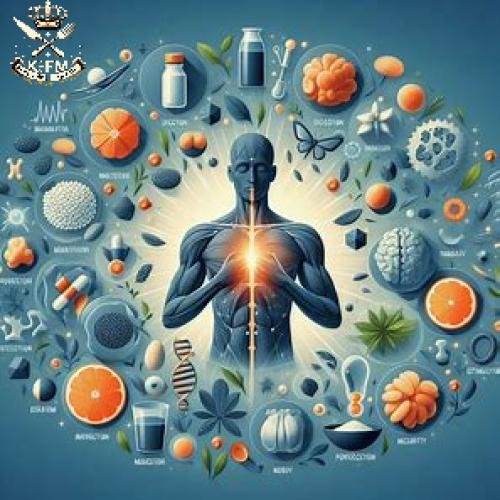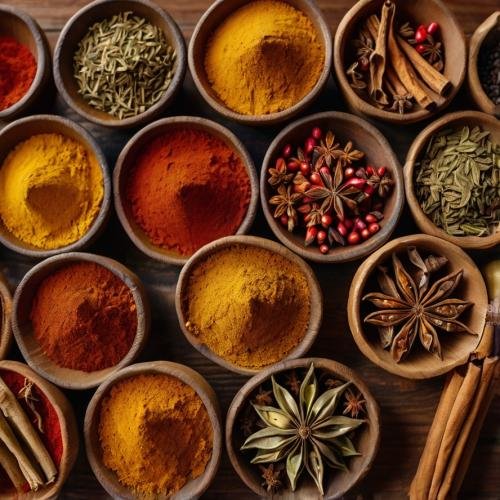Cancer treatment is a challenging process that may be accompanied by various side effects impacting patients' health and quality of life. Among these effects, dry mouth is one of the most common issues, especially for those undergoing chemotherapy. Chemotherapy can cause significant changes in the mouth, such as cracks, dryness, and difficulty speaking or swallowing, making daily life more challenging. In this article, we will discuss the causes of dry mouth resulting from chemotherapy, how to prevent it, and the best solutions to address this issue.
What is Dry Mouth?
Dry mouth, or "xerostomia," is a condition where there is a decrease in saliva production, leading to an uncomfortable feeling in the mouth. This dryness can result from damage to the salivary glands caused by chemotherapy, which may lead to thick saliva or, in some cases, insufficient saliva, making eating, drinking, and speaking extremely difficult.
Causes of Dry Mouth During Chemotherapy:
When a patient undergoes chemotherapy, the cells that form the salivary glands are affected, resulting in reduced saliva production. It is worth noting that the impact varies from patient to patient depending on various factors, such as the type of treatment and its duration.
Other factors contributing to dry mouth include:
- Radiation therapy in the head and neck area.
- Medications such as antihistamines, pain relievers, and certain cancer drugs.
- Stress and psychological strain can also exacerbate the issue.
How to Prevent Dry Mouth?
To minimize or avoid dry mouth during chemotherapy, follow these preventive tips:
- Drink plenty of water: It is recommended to drink about 8 to 12 cups of water daily to reduce dryness.
- Avoid dry foods: Such as crunchy bread or dry meals that may irritate the mouth.
- Stay away from alcoholic and caffeinated drinks: As they can worsen dryness.
- Use lip moisturizers: To prevent chapping on the lips.
Oral Care During Chemotherapy:
Maintaining oral hygiene during chemotherapy is essential to prevent infections and enhance daily comfort. Here are some important tips:
- Use a soft toothbrush: With fluoride toothpaste, and brush your teeth two to three times a day.
- Opt for alcohol-free mouthwash: To soothe and protect the mouth.
- Rinse with saline solution: To improve comfort and avoid infections.
Nutritional Solutions for Dry Mouth:
Proper nutrition is essential for patients experiencing dry mouth due to chemotherapy. One effective solution is consuming protein-rich drinks with ingredients that help maintain oral moisture and support overall health.
Protein-Rich Drink for Cancer Patients:
Try a scientifically-backed protein-rich drink containing ingredients like spinach, avocado, and flaxseeds to soothe inflammation, and probiotics from Greek yogurt to support gut health. This drink provides essential nutrients and improves oral health during chemotherapy. Find the recipe here .
Special Meals for Cancer Patients:
It is also important to provide patients with balanced, easy-to-swallow meals to enhance their experience during chemotherapy. There are many recipes suitable for cancer patients that support overall health and maintain oral moisture. These meals are based on healthy, nutritious ingredients that help boost immunity and maintain body weight. You can explore a collection of the best scientifically-backed recipes for cancer patients through this link: Best Recipes for Cancer Patients.
Examples of Recipes:
Here are some examples of recipes that can be used to relieve symptoms and improve overall health:
Kiwi and Citrus Salad:
- Description: A refreshing salad that helps hydrate the body and improve oral health, thanks to its Vitamin C and natural nutrients.
- Ingredients: Kiwi, Orange, Lemon, Strawberries.
- Benefits and Vitamins:
- Kiwi is high in Vitamin C, which boosts the immune system.
- Orange is rich in Vitamin C and fiber.
- Strawberries contain antioxidants and Vitamin C.
Apple and Carrot Juice:
- Description: A healthy juice that hydrates the body, improves oral health, and facilitates swallowing, thanks to its natural ingredients.
- Ingredients: Apple, Carrot, Lemon.
- Benefits and Vitamins:
- Apples are rich in fiber and Vitamin C.
- Carrots are high in Vitamin A, which supports eye and skin health.
- Lemon is rich in Vitamin C, which strengthens immunity and promotes hydration.
Lentil Soup with Tomatoes:
- Description: A nutritious soup that is high in protein and fiber, helping boost energy and support the digestive system.
- Ingredients: Lentils, Tomatoes, Garlic, Olive Oil.
- Benefits and Vitamins:
- Lentils provide protein and fiber.
- Tomatoes are rich in Vitamin C and lycopene, which is an antioxidant.
- Olive oil contains Vitamin E and beneficial fatty acids.
Medical Solutions for Dry Mouth:
In some cases, home remedies may not be sufficient. A doctor or dentist may prescribe saliva substitutes or medications that stimulate the salivary glands to increase saliva production. Other options include fluoride-containing products or antibacterial treatments to maintain oral health. In certain cases, electric water baths or acupuncture may be recommended as additional therapies to alleviate dry mouth.
Additional Tips for Managing Dry Mouth:
- Chew sugar-free gum: This can help stimulate saliva production.
- Avoid spicy or acidic foods: Such as citrus fruits or spicy dishes that can irritate the mouth.
- Use lip moisturizers frequently: To prevent and alleviate chapped lips.
- Eat small, frequent meals: To make swallowing easier and enhance comfort during meals.
Psychological Effects of Dry Mouth:
Dry mouth is not only a physical issue but also has psychological effects. Patients suffering from this problem may feel frustrated, anxious, and fatigued due to difficulty speaking or eating normally. Dry mouth can also impact the quality of life, making patients feel isolated and depressed because of the challenge in communicating with others or eating freely. Therefore, it is important for patients to be aware of how to manage these psychological effects.
How to Handle the Psychological Effects:
- Psychological Support: Receiving support from friends, family, or through support groups for cancer patients can help reduce anxiety and depression.
- Relaxation Techniques: Practicing deep breathing or meditation can help alleviate stress and improve mental well-being.
- Talking to Doctors: It is helpful to discuss any psychological effects caused by dry mouth with a doctor to receive advice and proper guidance.
Importance of Communication with the Medical Team:
Continuous communication with the medical team (doctor, nurse, nutritionist) is crucial during chemotherapy, especially when issues like dry mouth arise. The medical team can provide essential information about preventive methods, appropriate treatments, or adjusting chemotherapy if it causes undesirable symptoms.
Tips for Effective Communication with the Medical Team:
- Recording Symptoms: It is important for the patient to record any changes or new symptoms in their mouth so they can discuss them with the doctor.
- Asking Questions: Do not hesitate to ask any questions regarding treatment or how to manage dry mouth.
Medications for Treating Dry Mouth:
Some medications may be used to stimulate saliva production or alleviate dry mouth symptoms, such as:
- Saliva Stimulants: Such as bethanechol or cevimeline, which can help stimulate salivary glands.
- Saliva Substitutes: Such as special mouthwashes or sugar-free lozenges that contain moisturizing agents.
It is always important to consult with a doctor before starting any new medications.
Alternative Treatments:
Some patients may find relief through alternative treatments such as:
- Aromatherapy: Essential oils like peppermint or lavender oil can help reduce anxiety and alleviate bothersome symptoms.
- Yoga or Meditation: Helps reduce stress and improve blood circulation in the mouth, which may help relieve dry mouth.
However, before trying any of these treatments, it is important to consult with a doctor to ensure their safety during chemotherapy.
Importance of Supportive Care:
Supportive care from friends and family plays a significant role in improving the mental and physical well-being of patients suffering from dry mouth. Family and friends can provide daily assistance, such as reminding the patient to drink water regularly or preparing meals that consider the condition of dry mouth.
Frequently Asked Questions and Answers:
- Does dry mouth disappear after chemotherapy?
In most cases, dry mouth gradually disappears after chemotherapy. However, it may persist in some patients for a longer period, as chronic dryness can result from problems with the salivary glands that may require long-term treatment. - Can dry mouth be completely prevented?
Dry mouth resulting from chemotherapy cannot be completely prevented, but the risk can be reduced by following tips such as drinking fluids regularly, avoiding dry and spicy foods, and using moisturizing mouthwashes. - What is the relationship between dry mouth and oral infections?
Dry mouth increases the risk of oral infections. The lack of sufficient saliva allows bacteria in the mouth to grow, which can lead to issues like mouth sores and gum infections. Maintaining oral hygiene, including brushing teeth regularly and using appropriate mouthwashes, can help prevent these problems. - Can fluid substitutes be used?
Yes, fluid substitutes like sugar-free lozenges or special mouthwashes can help moisturize the mouth. Some foods, like yogurt or fresh fruits with a high water content, may also help hydrate the mouth naturally. - What is the relationship between nutrition and oral health during chemotherapy?
Proper nutrition plays a major role in maintaining oral health during chemotherapy. Consuming water-rich foods like fruits and vegetables can help hydrate the mouth. Avoiding salty and spicy foods may also help alleviate dryness. - How can a patient maintain their mental health while dealing with dry mouth?
It is important for the patient to practice relaxation techniques like meditation and deep breathing. Communicating with doctors and psychologists can also help reduce anxiety and frustration caused by the symptoms. - How important is it to visit the dentist regularly during chemotherapy?
Visiting the dentist is important to maintain oral health, as the patient may be more prone to cavities and oral infections due to dry mouth. Visiting the dentist helps in early detection of any issues and managing them before they worsen.
Dry mouth and oral cracks caused by chemotherapy are common health challenges for cancer patients, but with proper care, these symptoms can be significantly alleviated. By staying hydrated, following oral care tips, and using appropriate nutritional and medical solutions, patients can improve their quality of life and manage these troublesome side effects. Don’t hesitate to consult your doctor or nutritionist for specialized guidance to improve your overall health during treatment.




















